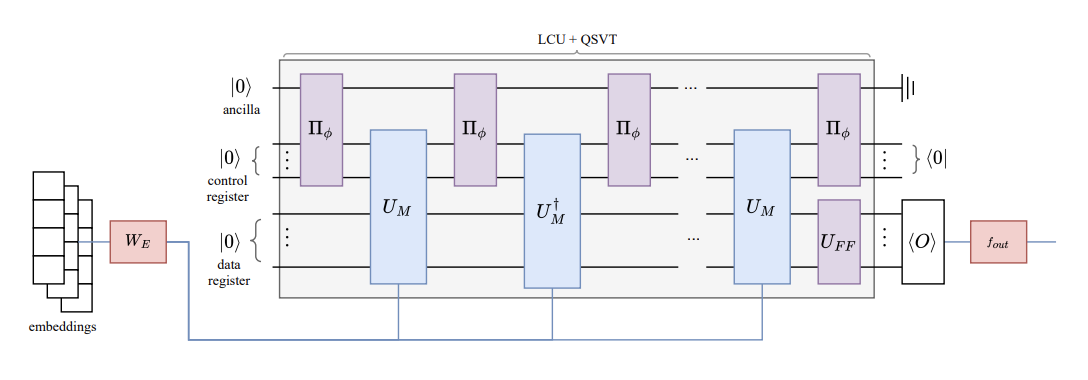



OQC, a leading quantum computing company, has announced the launch of OQC Toshiko, the world's first enterprise-ready quantum computing platform. OQC Toshiko is a 32-qubit platform that can be deployed in commercial data centers, providing businesses in industries such as finance, pharmaceuticals, energy, defense, and government with secure and seamless access to quantum computing technology. The platform has been developed in collaboration with companies like Equinix, NVIDIA, AWS, and McKinsey, with the aim of bringing quantum computing out of the lab and into the enterprise.
OQC Toshiko is currently available in private preview and will expand its availability across public cloud and data center fabric in the coming months. The launch of OQC Toshiko reinforces OQC and the UK as global leaders in quantum technology. OQC's ongoing funding round, which is the UK's largest ever Series B in quantum computing, will enable industry-leading research and development and pave the way for next-generation platforms with hundreds of qubits. OQC's mission is to empower businesses and researchers to make breakthroughs across industries and scientific domains, while also championing diversity in the tech sector. [32456fd4]
Terra Quantum, another player in the quantum computing industry, has unveiled its own accessible quantum computing platform called TQ42. Florian Neukart, the Chief Product Officer at Terra Quantum, shared details about the platform in an interview with Yuval Boger, the CMO of QuEra Computing. TQ42 aims to democratize quantum computing and achieve room-temperature superconductivity in graphite. The platform simplifies quantum computing use with a software development kit (SDK) approach, providing a user-friendly interface and integrating into any cloud environment. It also features an app store where applications for common problems are readily available, adopting an ecosystem approach. Terra Quantum's breakthrough in room-temperature superconductivity in graphite could pave the way for more sustainable and economically feasible quantum computing platforms. The global quantum computing market is projected to experience robust growth, driven by increasing investment from governments and private institutions. Despite challenges such as complexity, workforce skill requirements, coherence and error correction in quantum systems, standardization, cybersecurity, and ethical use, the quantum computing sector is expected to become a multibillion-dollar market within the next decade. [32456fd4] [7f727e06]
Quantinuum AI Team has introduced Quixer, a state-of-the-art quantum transformer that is quantum 'native'. Quixer has demonstrated efficient and effective quantum transformations tailored for language modeling tasks. The team aims to merge quantum computing and artificial intelligence (AI) as both fields are rapidly progressing. Traditional approaches to implementing AI models on quantum computers have often led to inefficiencies. Quixer, designed explicitly for quantum circuits, uses quantum algorithmic primitives to enhance qubit efficiency and potentially outperform classical models. Quixer has been applied to a practical language modeling task using the Penn Treebank dataset, producing competitive results with classical baselines. The researchers acknowledge the limitations of quantum models and plan to focus on scaling up these models and exploring new instances of the framework. The introduction of Quixer advances the field of quantum AI and demonstrates the practical benefits of integrating quantum computing with AI technologies. The potential applications of Quixer extend beyond language modeling to other areas requiring complex data analysis and pattern recognition. Quantinuum's System Model H2 has surpassed Google's quantum supremacy benchmarks, indicating rapid progress in advanced quantum computing capabilities. The team includes Dr. Steve Clark, Nikhil Khatri, Gabriel Matos, and Luuk Coopmans. [49d4eb61]
Quantum AI is a burgeoning computer science sector that seeks to apply principles from quantum mechanics to enhance AI algorithms. Researchers believe that AI models developed with quantum computing will soon outpace classical computing AI development. Quantum AI creates an intersection between quantum computing and artificial intelligence, allowing for the development of quantum neural networks and quantum-inspired approaches to reduce the development and training costs of large language models. The combination of quantum computing and AI has the potential to revolutionize various fields, including simulating molecules for drug and material design, optimizing financial portfolios, developing new materials, and optimizing transportation routes and supply chains. While quantum AI is already finding commercial value, the integration of quantum computing with AI is a complex endeavor that will unfold gradually. Early adopters of quantum AI are expected to gain a competitive advantage. However, the road ahead may be rocky due to the noise and lack of quantum error correction technology in quantum hardware. Quantum AI breakthroughs are emerging from regional developer and support communities. The transition to quantum AI is necessary to address the energy costs of current AI models. Quantum AI is expected to have a broad range of industrial applications in the next two to three years. [57451b87]
[Image: Quantum Computing and AI: A Perfect Match?](https://eu-images.contentstack.com/v3/assets/blt69509c9116440be8/blt51c2ceda71dfc3c0/66689c8a190219c07ebb936d/AI_quantumcompute_tcharts-AlamyStockPhoto.jpg?disable=upscale&width=1200&height=630&fit=crop)
Source: [InformationWeek](https://www.informationweek.com/machine-learning-ai/quantum-computing-and-ai-a-perfect-match-)
Author: Technology Journalist & Author
Published: June 14, 2024
Quantum AI is a burgeoning computer science sector that seeks to apply principles from quantum mechanics to enhance AI algorithms. Researchers believe that AI models developed with quantum computing will soon outpace classical computing AI development. Quantum AI creates an intersection between quantum computing and artificial intelligence, allowing for the development of quantum neural networks and quantum-inspired approaches to reduce the development and training costs of large language models. The combination of quantum computing and AI has the potential to revolutionize various fields, including simulating molecules for drug and material design, optimizing financial portfolios, developing new materials, and optimizing transportation routes and supply chains. While quantum AI is already finding commercial value, the integration of quantum computing with AI is a complex endeavor that will unfold gradually. Early adopters of quantum AI are expected to gain a competitive advantage. However, the road ahead may be rocky due to the noise and lack of quantum error correction technology in quantum hardware. Quantum AI breakthroughs are emerging from regional developer and support communities. The transition to quantum AI is necessary to address the energy costs of current AI models. Quantum AI is expected to have a broad range of industrial applications in the next two to three years. [57451b87]